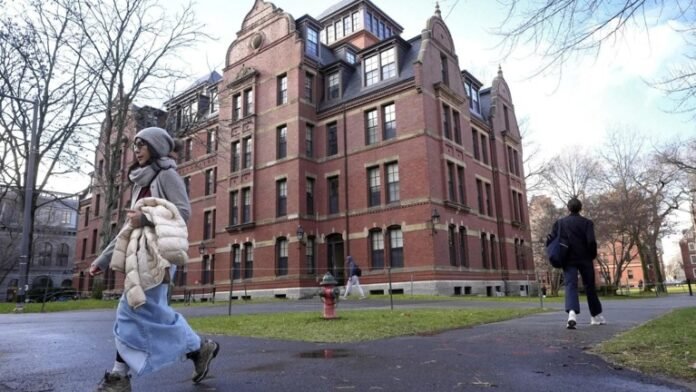The federal government has frozen $2.2 billion in grants previously allocated to Harvard University. The decision, announced by the Trump administration, marks one of the most significant financial clampdowns on an Ivy League institution in modern U.S. history. While the move has sparked fierce debate across the political spectrum, it also raises important questions about the future of university-government relationships and the financial lifeblood of elite academic institutions.
At the center of the controversy is a broader investigation into how federal funds are being used by elite universities and whether those institutions are living up to their responsibilities regarding transparency, academic freedom, and national interests. Harvard, which received the largest portion of federal funding among private universities, now finds itself under intense scrutiny for how those grants are distributed across departments and research projects.
The $2.2 billion in question spans a wide array of programs, from cutting-edge biomedical research and climate science to public health initiatives and defense-related technology development. These grants are not only vital to Harvard’s academic operations but also support thousands of jobs, both directly and indirectly. Many faculty, graduate students, and research fellows rely on these funds for their livelihoods. Halting the financial pipeline has immediate ripple effects across laboratories, collaborative projects, and community outreach programs.
The Trump administration justified the freeze as part of a broader effort to reevaluate the use of taxpayer money in academia. Officials have cited concerns over foreign influence, particularly from adversarial nations, and have questioned whether universities like Harvard are doing enough to safeguard research and maintain intellectual independence. In particular, some grants related to international partnerships and joint research ventures are being audited for compliance with federal disclosure rules and conflict-of-interest policies.
Critics of the freeze argue that this is a politically motivated decision targeting elite institutions perceived to lean liberal. They warn that weaponizing funding against perceived ideological opponents sets a dangerous precedent and undermines the core values of academic freedom and scientific independence. Supporters, however, see it as a necessary intervention to hold powerful universities accountable and ensure public money is being used responsibly.
Harvard has pushed back strongly against the decision, stating that it is fully compliant with federal guidelines and has rigorous systems in place to track research spending and foreign collaboration. In a statement, the university emphasized its role as a global leader in innovation and discovery, warning that the freeze could have long-term consequences not only for Harvard but also for the broader scientific and educational community in the United States.
The timing of the decision is particularly notable, as it comes amid an already tense national climate surrounding education, diversity, and institutional trust. From controversies over campus speech and DEI policies to broader debates about the cost and value of higher education, Harvard has increasingly found itself a symbolic battleground in larger cultural and political wars.
What remains to be seen is whether this funding freeze will be a temporary measure or the start of a longer-term shift in how federal grants are awarded and monitored. Congressional hearings are expected to follow, and there is growing pressure from advocacy groups and lawmakers to demand transparency from both the Department of Education and Harvard itself. The outcome could reshape not just Harvard’s future, but also set the tone for the relationship between the federal government and American universities going forward.
For now, Harvard faces an uncertain financial horizon, with major projects potentially on hold and its reputation under the microscope. As the dust settles, the academic world will be watching closely, aware that this case may set a precedent for how power, politics, and prestige intersect in the funding of America’s most esteemed institutions.

